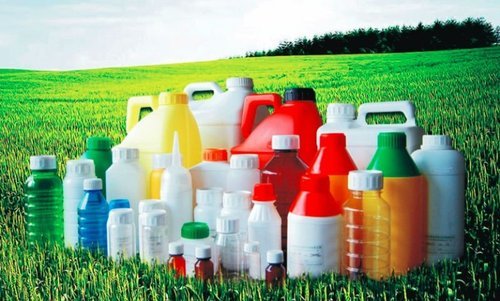By Rajesh Aggarwal, Managing Director, Insecticides (India) Ltd.
India is the fourth largest producer of agrochemicals, with domestic consumption of around Rs 32,000 crore in FY2021 and exports of around Rs 40,000 crore. Several growth factors, such as growing population, shrinking arable land, increasing demand for high-value agricultural products, and enhanced efforts from the industry and the government to promote awareness and technology enhancement, are expected to drive industry growth at a CAGR of 8–10 per cent until 2025.
The government’s attempt to double farmers’ income demonstrates its commitment and promises a brighter future for all parties involved. Several revolutionary reforms and initiatives have already been implemented with the goal of achieving world-class agricultural productivity. With a vision of achieving a ‘Atmanirbhar Bharat,’ the government is turning every stone in the form of ‘Make in India’ reforms in law, benefits to marginal farmers, and crop-based subsidies, to meet the United Nations’ goals of sustainable development.
However, policy changes and intervention are needed in a number of areas. The following actions will ensure agrochemicals’ sector’s growth:
Removing the bottlenecks: Industry players perceive the registration process as a time-consuming, iterative, and complex procedure, which is one of the challenges posed by the current regulatory framework. This time-consuming process must be expedited keeping the regulations and requirements same as soon as possible. This will enable the companies to bring out the newer chemistries faster for the benefit of Indian agriculture. It is necessary to accelerate the entire process. More policies focusing on benefits to small and marginal farmers, lower crop protection chemical taxes, and legal reforms that help attract more foreign investment in the agrochemical sector are urgently needed.
Favourable import-export policies: The industry relies heavily on imports of raw materials and technical active ingredients to manufacture the formulations. Import/export policies that favor the sector, as well as a push for a Make in India policy for agrochemicals, the resolution of geopolitical issues, and trade sanctions with exporting countries, can all contribute to the sector’s long-term viability.
Policies that encourage the use of technology: Agriculture in India is highly dynamic and highly reliant on natural occurrences. Agrochemical consumption is linked to farmers’ willingness to invest in agri inputs, which can vary depending on crop growth, market prices, weather conditions, and pest infestation. If any of the factors change dramatically, this can result in significant supply and demand gaps. Moving to a digital, data-driven demand forecasting approach can aid industry players in addressing this issue and ensuring supply chain efficiency. Several agrochemical companies, including Insecticides (India) Limited, have used digital tools to collect, compile, and analyse data related to demand indicators, resulting in a much more reliable demand forecasting system.
Policies for new molecules: The pharmaceutical industry is heavily reliant on generic and older molecules, many of which are also hazardous. As a result, the agrochemical industry is at risk of strict regulatory reforms aimed at phasing out such products. As a result, an action plan must be developed in collaboration with industry experts for the gradual replacement of existing products that may be subject to regulatory action. To expand product offerings and de-risk agrochemicals companies’ product portfolios, in-licensing of active ingredients should be encouraged.
Putting the PLI scheme into practise: Creating a digitally led, robust agrochemicals supply chain would aid in ensuring that Indian farmers have access to the right products at the right time. In 2020, the central government announced a production-linked incentive (PLI) programme for agrochemicals. Now that the pandemic is almost over, this policy should be implemented quickly. According to reports, the government has already identified specific products that will benefit from the scheme, and industry consultations are now complete. Agrochemicals will be the 15th industry covered by the PLI scheme.
The bottom line
For decades, the agrochemical industry has been a Champion Sector because it contributes significantly to food security and employs a large workforce. The sector must be given its fair share of ‘Ease of Doing Business,’ while also removing bottlenecks and implementing progressive regulatory measures to protect the environment.
By Rajesh Aggarwal, Managing Director, Insecticides (India)





